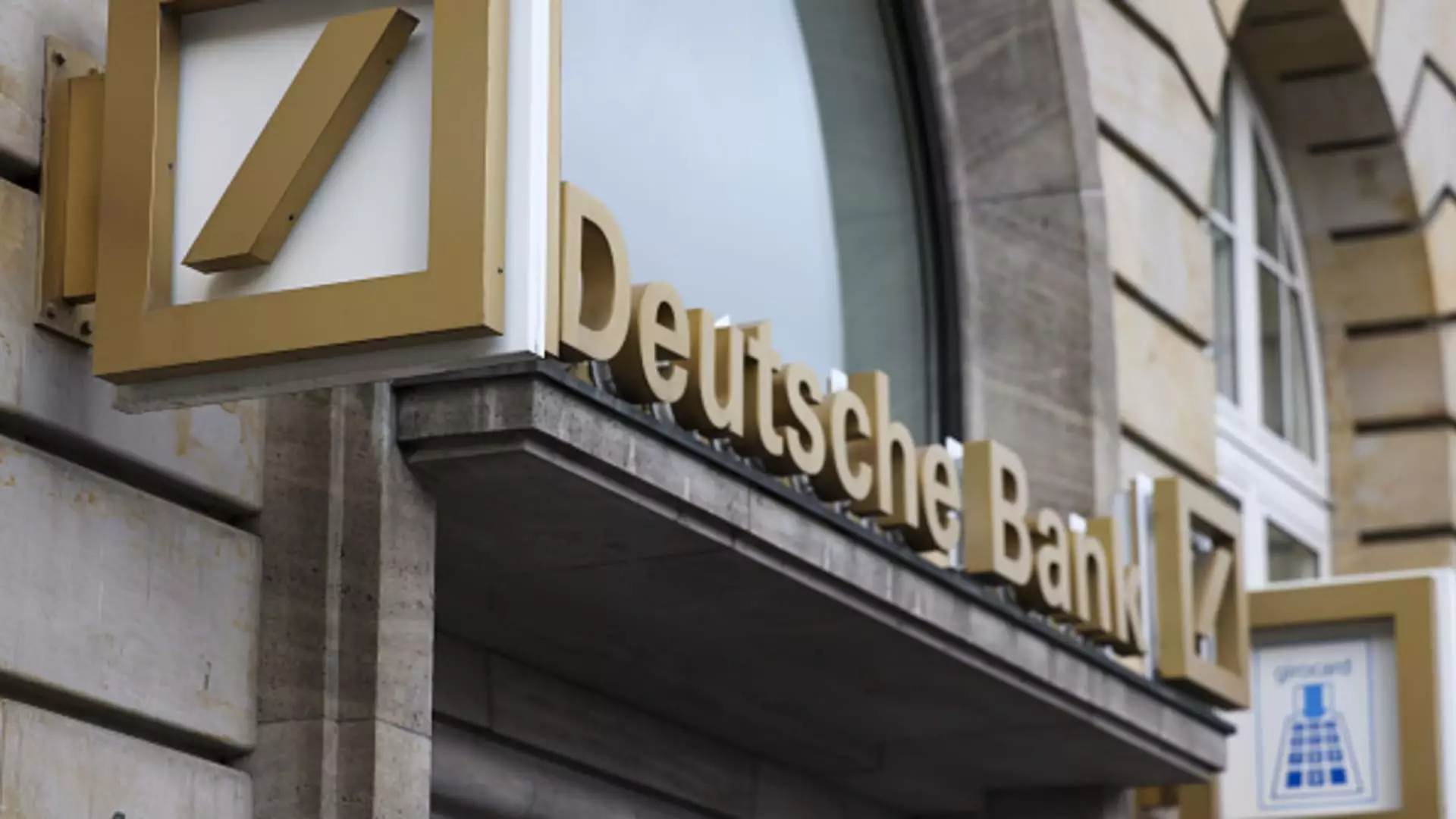In a commendable display of financial recovery, Deutsche Bank has once again emerged into profit, surpassing analyst expectations with its latest report for the three-month period ending in September. Following a surprisingly dismal second quarter, where the bank recorded a loss of 143 million euros, the latest figures signal a robust rebound, intertwining elements of strategic foresight and operational resilience.
During the third quarter, the bank achieved a net profit attributable to shareholders of 1.461 billion euros ($1.58 billion), significantly outstripping the forecasted profit of 1.047 billion euros as per an LSEG poll. Additionally, a revenue total of 7.5 billion euros, exceeding predictions of 7.338 billion euros, further cements Deutsche Bank’s rebound. This resurgence can be attributed to several factors, including an increase in profit before tax of 2.26 billion euros—marking a striking 31% increase when compared to the same period last year.
Moreover, provisions for credit losses have risen to 494 million euros, translating to a marked increase from 245 million euros during the same quarter the previous year. This uptick in provisions, while seemingly daunting, is indicative of the bank’s proactive approach in risk management. The Common Equity Tier 1 (CET1) capital ratio, a crucial measure of solvency, showed an improvement to 13.8%, slightly up from 13.5% in the preceding quarter, reflecting the bank’s solid capital position.
A pivotal moment in Deutsche Bank’s recent recovery was its ability to settle long-standing legal issues, notably relating to its acquisition of Postbank subsidiary. With approximately 60% of plaintiffs in the lawsuit having settled, the partial release of 440 million euros in litigation provisions has contributed significantly to the profit surge. This reduction in financial burden provides a fertile ground for Deutsche Bank to pursue not only operational efficiency but also shareholder value through potential share buybacks, which had previously been hindered by ongoing litigation.
In light of these developments, CEO Christian Sewing expressed optimism regarding the path towards sustainable profitable growth. The bank is seeking to not only stabilize its earnings but also to exceed prior capital distribution goals, hence enhancing shareholder confidence.
An analysis of income sources reveals that revenues from the investment banking division surged to 2.5 billion euros, reflecting an 11% increase year-over-year. Such growth was especially driven by performance in the fixed income and currencies unit, underscoring the importance of diverse income streams in navigating challenging market conditions. Similarly, asset management revenues recorded a year-on-year rise of 11%, totaling 660 million euros, highlighting a resilient demand for asset management services despite an evolving economic landscape.
Despite this impressive performance, Deutsche Bank faces mounting pressures akin to those affecting the broader European banking sector. With the European Central Bank’s recent decision to loosen monetary policy, the competitive landscape is shifting. U.S. counterparts have traditionally outperformed their European peers, and analysts from McKinsey emphasize that continued improvements in return on tangible equity (ROTE) margins will necessitate significant cost reductions—implying a need for strategic adaptability.
In February, Deutsche Bank embarked on an extensive cost-saving initiative that plans to reduce its workforce by 3,500 jobs by 2025. This measure, although a difficult choice, reflects the urgent need to align expenditures with already strained revenues as the bank adjusts to the new monetary environment and the shifting priorities of the marketplace.
As market participants look ahead, the potential for mergers within the European banking sector remains a hot topic. Currently, Deutsche Bank has distanced itself from discussions surrounding a merger with domestic competitor Commerzbank, which may undergo acquisition discussions with Italy’s Unicredit. Meanwhile, other European banking entities are also set to disclose their third-quarter earnings, which will provide further insights into market trends and stability.
While Deutsche Bank has shown a remarkable capacity to rebound, ongoing economic changes and the need for strategic adjustments necessitate sustained vigilance and robust planning. As it navigates these complexities, the bank’s focus on enhancing profitability through operational efficiency and legal resolution will be key determinants of its future success.

Leave a Reply